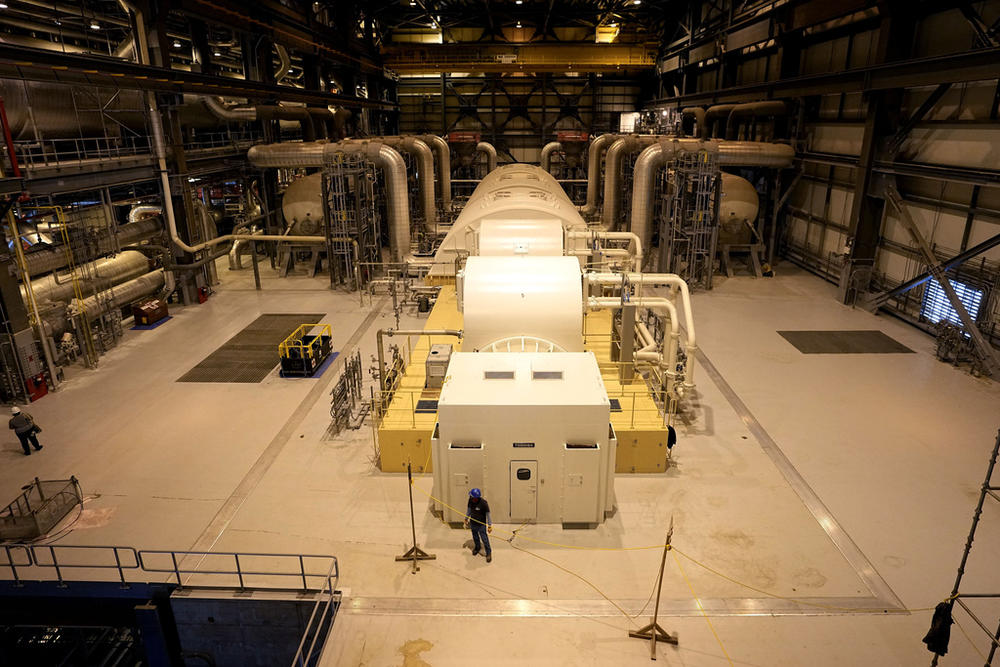
Caption
A turbine that generates electricity using steam heated by nuclear fission sits at Georgia Power Co.'s Plant Vogtle nuclear power plant Jan. 20, 2023, in Waynesboro, Ga. Company officials announced Friday, June 16, 2023, that the turbine's hydrogen cooling system had a problem with its seal, pushing back the commercial operation date of Unit 3, one of two new reactors at the site, to July.
Credit: AP Photo/John Bazemore, File

